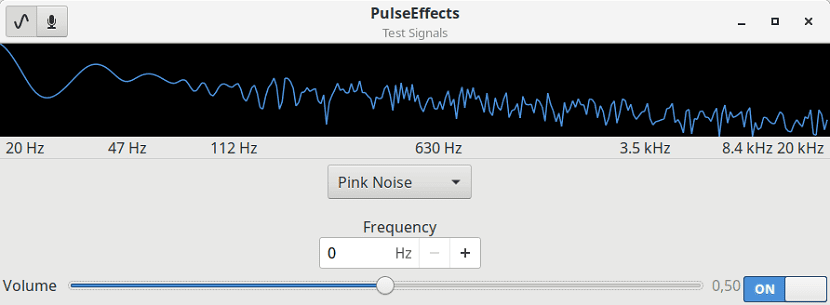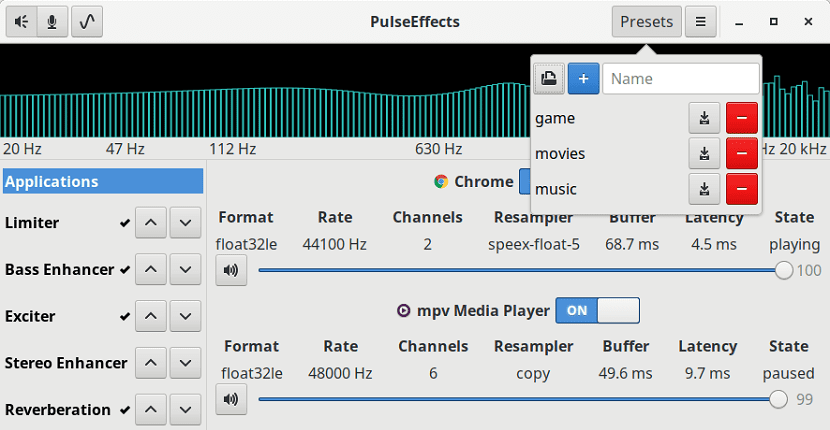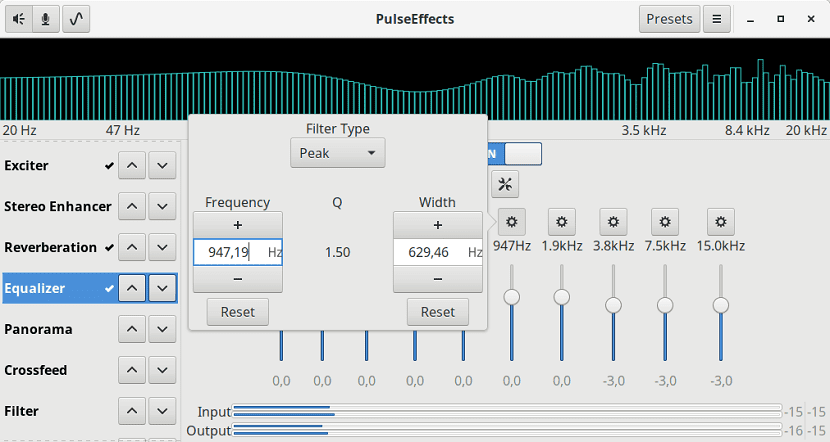
Si have an audio system in their systems be it advanced or from simple headphones it is possible that on some occasion they used or have thought about changing the default configuration of the audio output of their systems.
For this they must use an equalizer in their systems with which they change the default values with which the audio of your system reproduces sounds or music. And not only that youIt is also possible to change the preferences of the audio input to your system.
That is why in this article let's talk about PulseEffects an excellent tool that will help us in this work.
PulseEffects is an application used to manage and control PulseAudio audio effects on Linux and other Unix systems.
PulseAudio is a free and open source sound server distributed through the freedesktop.org project. It runs mainly on Linux and various BSD distributions. When you hear any audio coming out of your notebook or desktop, know that the PulseAudio is responsible for this process.
About PulseAudio

Since version 2.0.0 of PulseEffects, Effects can be applied to the microphone output at the same time that you apply them to the application output.
Comes with Input Limiter, Compressor, High-Pass Butterworth Filter, Low-Pass Butterworth Filter, 30-Band Parametric EQ, Exciter, Bass Enhancer, Stereo Enhancer, Freeverb, Stereo Panorama, Maximizer, Output Limiter and Analyzer spectrum.
PulseEffects is a free and open source application written in Gtk + that requires PulseAudio for its function.
Between the different effects that Pulse Effects can find.
- PulseEffects effects to audio output:
- Input limiter (Calf Studio LV2 limiter)
- Automatic volume
- Compressor (Calf Studio LV2 Compressor)
- Butterworth high pass filter (Gstreamer audiocheblimit)
- Butterworth low pass filter (Gstreamer audiocheblimit)
- 30-band parametric equalizer (Gstreamer)
- Bass Enhancer (LV2 Bass Enhancer by Calf Studio)
- Exciter (Calf Studio LV2 Exciter)
- Stereo Enhancer (Calf Studio LV2 Stereo Enhancer)
- Stereo panorama (Gstreamer)
- Stereo Spread (LV2 MultiSpread by Calf Studio)
- Freeverb (Gstreamer)
- Crossfeed (Bs2b library)
- Lag Compensator (LV2 Lag Compensator from Linux Studio Plugins)
- Maximizer (Ladspa Maximizer by ZamAudio)
- Output limiter (Calf Studio LV2 limiter)
- Spectrum analyzer (Gstreamer)
Effects that can be applied to the audio input:
- Door (Door LV2 from Calf Studio)
- Webrtc (GStreamer)
- Input limiter (Calf Studio LV2 limiter)
- Compressor (Calf Studio LV2 Compressor)
- Butterworth high pass filter (Gstreamer audiocheblimit)
- Butterworth low pass filter (Gstreamer audiocheblimit)
- 30-band parametric equalizer (Gstreamer)
- Deesser (Deesser LV2 by Calf Studio)
- Freeverb (Gstreamer)
- Change of tone
- Spectrum analyzer (Gstreamer)
How to install PulseEffects on Linux?

Si want to install this tool on their systems, They must open a terminal and execute one of the following commands according to the Linux distribution they are using.
If they are users of Arch Linux, Manjaro, Antergos or any distribution based on Arch Linux They must have the AUR repository enabled in their pacman.conf file.
The installation command is:
pacaur -S pulseeffects
For Ubuntu 18.04 users or derivatives thereof, they can install the application by adding a repository to their system.
I must emphasize that it is only valid for this version, so for previous versions they must use another method.
To do this, they type:
sudo add-apt-repository ppa:mikhailnov/pulseeffects -y sudo apt update
And they install the application with:
sudo apt install pulseeffects
While For those who are Debian users or some distribution based on that:
echo "deb http://ppa.launchpad.net/mikhailnov/pulseeffects/ubuntu bionic main" | sudo tee /etc/apt/sources.list.d/mikhailnov-ubuntu-pulseeffects-bionic.list sudo apt-key adv --keyserver hkp://keyserver.ubuntu.com:80 --recv-keys FE3AE55CF74041EAA3F0AD10D5B19A73A8ECB754 echo -e "Package: * \nPin: release o=LP-PPA-mikhailnov-pulseeffects \nPin-Priority: 1" | sudo tee /etc/preferences.d/mikhailnov-ubuntu-pulseeffects-ppa sudo apt update sudo apt install pulseeffects
Finally, for the rest of the distributions we can install PulseEffects with the help of Flatpak technology we just have to have the support for it in our systems.
To install we only type:
flatpak remote-add --if-not-exists flathub https://flathub.org/repo/flathub.flatpakrepo flatpak install flathub com.github.wwmm.pulseeffects